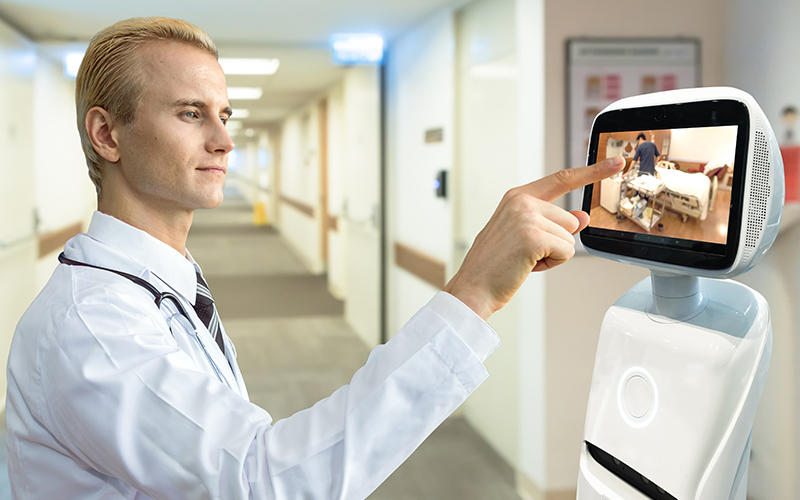Robotic Process Automation
Robotic process automation in healthcare - a life-saving strategy
Studies show that most healthcare organizations rely on doctors and healthcare workers for manual, labour-intensive tasks, such as data entry, managing records, scheduling appointments, and other repetitive administrative work.
One survey indicated that 42% of doctors experienced burnout at some point in their careers due to excess clerical work; another showed that three out of four hospitals cited operational efficiency and cost reduction as their focus areas of improvement in the near future, for which implementing the right technology is imperative.
The healthcare industry has been increasingly turning to robotic process automation (RPA) and artificial intelligence (AI) to tackle such challenges using strategic and profitable automation.
According to a McKinsey study, robotic process automation in healthcare will generate $350 billion and $410 billion in annual value by 2025. In the post-COVID-19 era, automation in healthcare has already accelerated operations in various healthcare organizations.
How does RPA benefit the healthcare industry?
The advent of RPA in the healthcare industry eases the burden on already busy workforces by automating various complex tasks, thereby:
Improving efficiency:
Estimates show that health plans spend $2.1 billion annually on inefficiently performed manual tasks. Software robots help streamline processes by completing these tasks faster and with more accuracy.Improving cost management:
By introducing bots to take over day-to-day repetitive tasks, RPA offers significant savings that can be invested in enhancing patient care.Improving healthcare facilities and analytics:
Through automated data collection, patients are served better as accurate and timely healthcare decisions are taken to provide the right treatment and improve patient care and recovery.Enhancing patient care cycle:
Robotic process automation helps release healthcare staff from repetitive tasks and lets them focus on patient-centered activities and areas that require human connection.
RPA has also shown promise in automating HR management, enhancing data confidentiality, and improving revenue cycles.
RPA use cases in healthcare
Simplified patient appointment scheduling:
Chat bots offer a personalized experience by gathering relevant medical data required from the patient, to set an appointment. Once the data is collected, it is made available to the doctor, the appointment is booked, and the slot is blocked in the database.Automated billing procedures:
Account settlement is time-consuming with calculation and evaluation of numerous bills (doctor’s fee, test costs, room costs, etc.) during a patient’s diagnosis and treatment. Bots precisely calculate the bill amount at a faster rate, thereby improving billing efficiency and avoiding payment delays and miscalculated bills.Insurance claim management:
RPA helps optimize information collected from various sources across multiple systems for claims processing, with 100% accuracy. From filing the claims, filtering the data, and paying the claimants, the automated claims process reduces average transaction times from an average of 12 minutes to just two minutes. Time saved is time gained.Inventory and supply chain management:
RPA can help supply chain managers track the inventory required in a hospital, such as gloves, needles, syringes, medicines, or PPE kits by notifying about changes in demand and supply patterns.
Infosys BPM & RPA in healthcare
To address the changing dynamics of the healthcare industry, we combine strong domain expertise, flexible operating models, and integrated IT-BPM solutions for the implementation of RPA and analytics.
Our platform and technology-agnostic approach has made an impeccable record of supporting over 900 business processes across 44 clients possible. Infosys BPM’s healthcare service offerings include:
- Patient care and relationship management
- Revenue cycle management
- Resources and supply chain planning
- Market definition and strategic planning
Get in touch with us to explore RPA solutions for healthcare that are designed to transform operating models, improve business performance, and standardize processes with reduced costs.







